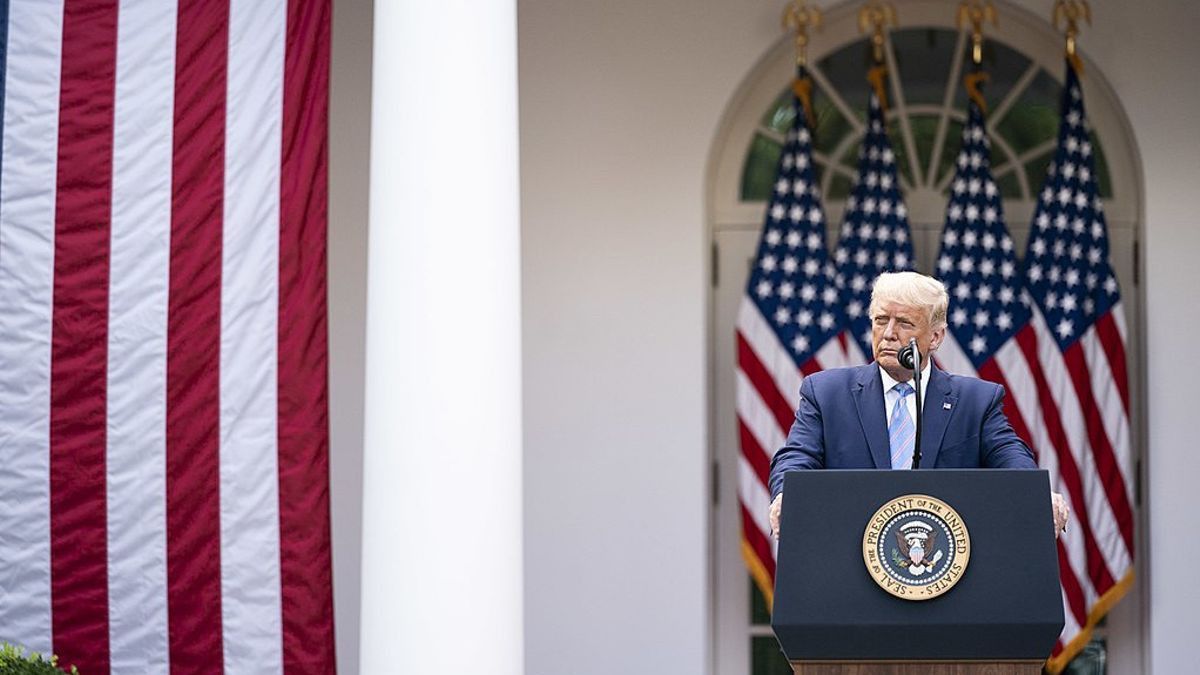JAKARTA - An official from the United States (US) administration unveiled President Donald Trump's planned attack on Iran's main nuclear site. Even so, the plan which the official described as "sudden" was nevertheless taken.
Trump made the request during a meeting at the Oval Office on Thursday, November 12 with a number of state security officials, including Vice President Mike Pence, Secretary of State Mike Pompeo, Acting Secretary of Defense Christopher Miller, General Mark Milley, and chairman of the Joint Chiefs of Staff. The option is proposed within the remaining two months of Trump's term before he must hand over power to US President-elect Joe Biden on January 20, 2021 - although Trump has so far refused to recognize the election results.
The same government official source confirmed reports of the meeting to The New York Times. He said advisers were persuading Trump not to take the assault decision because it risks creating a wider conflict.
"He (President Trump) put forward an option. They (Trump's advisers) laid out a scenario and he finally decided not to continue with it," the official said.
The White House did not commentDuring his four years in office, Trump has pursued aggressive policies against Iran, exiting the 2018 Iran nuclear deal negotiated by President Barack Obama and imposing economic sanctions targeting Iran.
Trump's request for attack comes one day after the International Atomic Energy Agency (IAEA) issued a report saying Iran had finished moving the first runoff from above-ground plants to underground uranium enrichment sites, in the latest violation of the Iran nuclear deal. .
Iran's supply of enriched-enriched uranium now stands at 2.4 tonnes - far short of the agreed limit of 202.8 kilograms. Iran produced 337.5 kilograms of uranium in the third quarter of 2020, less than the IAEA record in the previous two quarters, which was 500 kilograms. In January, Trump ordered a drone strike on Baghdad airport, which killed Iran's military leader, General Qassem Soleimani.
Afterward, Trump avoided a broader military conflict and sought to pull US troops away from multiple points of world conflict by promising to end what he called an "endless war." And if carried out, the US attack on Iran's main nuclear site in Natanz could create conflict in the region as well as pose serious challenges to Joe Biden's future foreign policy.
The Biden administration's transition team, which currently does not have access to the national security system due to Trump's refusal to transition to power, declined to comment on this.
The English, Chinese, Japanese, Arabic, and French versions are automatically generated by the AI. So there may still be inaccuracies in translating, please always see Indonesian as our main language. (system supported by DigitalSiber.id)













